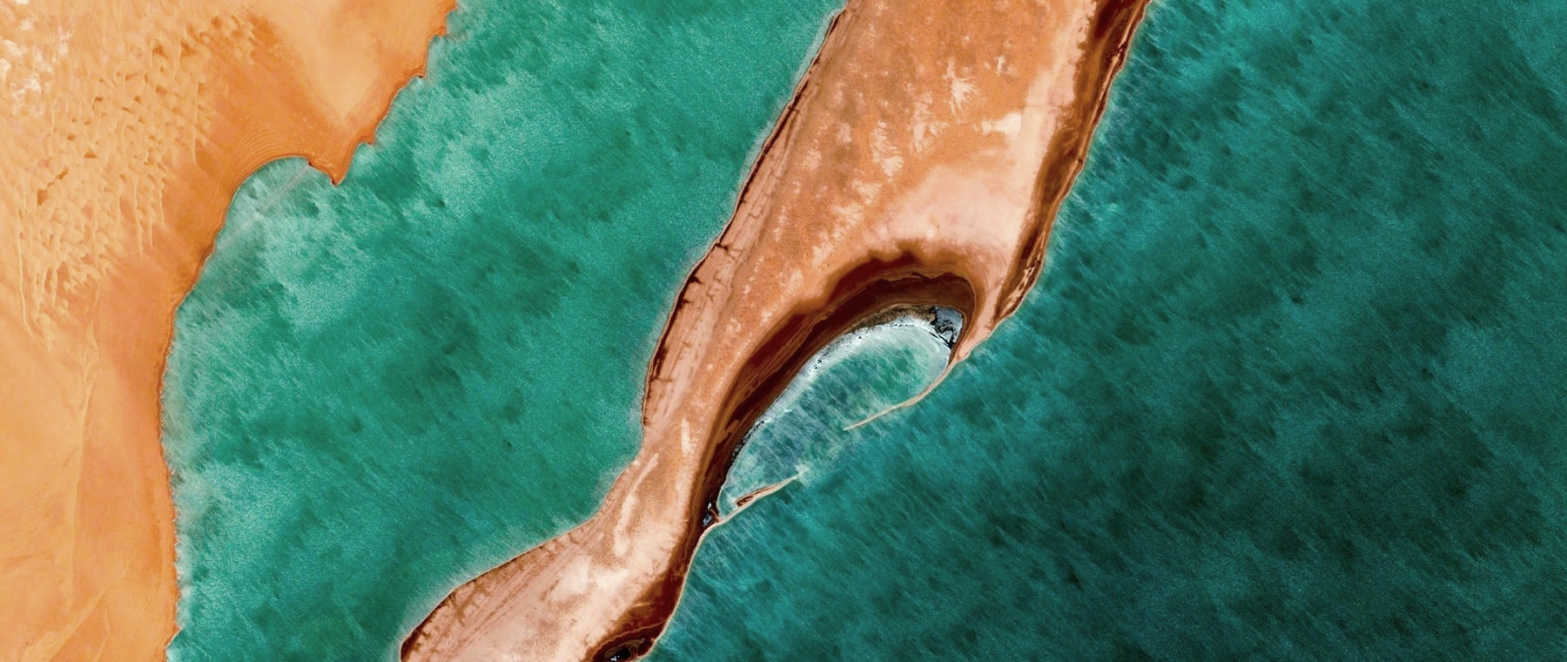Work Experience
Sonia’s experience and interest lie at the interface of nature conservation/restoration and community engagement for social transformation. She brings a transdisciplinary perspective to address societal challenges such as ecosystem restoration, water management, and disaster risk reduction (DRR). During the last 20 years has been working between Chile, and Brazil, and is currently working in the Netherlands as Portfolio Manager Peatlands at Wetlands International (Global Office). She brings elements such as Responsible Research and Innovation (RRI) and co-creation practices into wetlands restoration and has been recently inspired by Art & Science approaches as a way to engage in behaviour change.
Expertise areas
Pursuing the integration of the following fields:
- Art & Science / Wetlands conservation- restoration & water management / Climate change and Disaster Risk Reduction / Land-use Planning and Design / Landscape Ecology / Science, Technology and Innovation
Languages
- Spanish, mother tongue / Fluent in English / Fluent in Portuguese / Dutch, A2 level
Work History
2022- Present Portfolio Manager Peatlands at Wetlands International
2017-2022 Researcher at Center for Science and Technology, Leiden University, NL
2015-2018 Researcher at Geography Depart. UFRJ, Brazil (Remotely from NL)
2014-2015 Water resources consultant for HIDROMÀS, Chile (Remotely from NL)
2012-2014 MSc in Geography. Federal University of Rio de Janeiro, UFRJ. Brazil
2008-2011 Civil Servant at General Water Directorate, Ministry of Public Works. Chile
2007-2007 Environmental Analyst at Regional Metrop. Government of Santiago. Chile
2004-2007 Wetland specialist and Landscape Planner for Government Agencies. Chile
2004-2006 Wetland Advisor at NGO– Aquatic Environments Corporation of Chile.
Work experience
Wetlands conservation and restoration – focus on Peatlands /2022 – present
Currently works as a Portfolio Manager for Wetlands International, and is closely involved in WaterLANDS and Wet Horizons projects providing input for strategical – technical implementation of the initiatives. See recent interview (Here)
Science & Society /2017-2022
Worked as a researcher and project coordinator at CWTS, Leiden University in the Netherlands, involved in European projects on Responsible Research & Innovation (RRI) to enable the use of scientific knowledge as a way to address societal demands. Her role as research also considered activities on community engagement, promoting co-creation practices, and conducting Policy Labs.
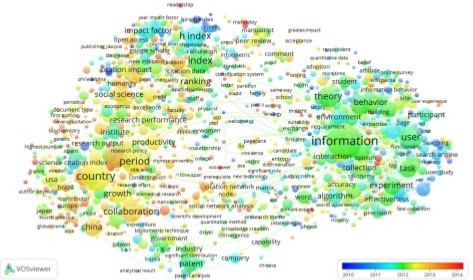 Knowledge production analysis (Term map showing time trend) – Vosviewer
Knowledge production analysis (Term map showing time trend) – Vosviewer
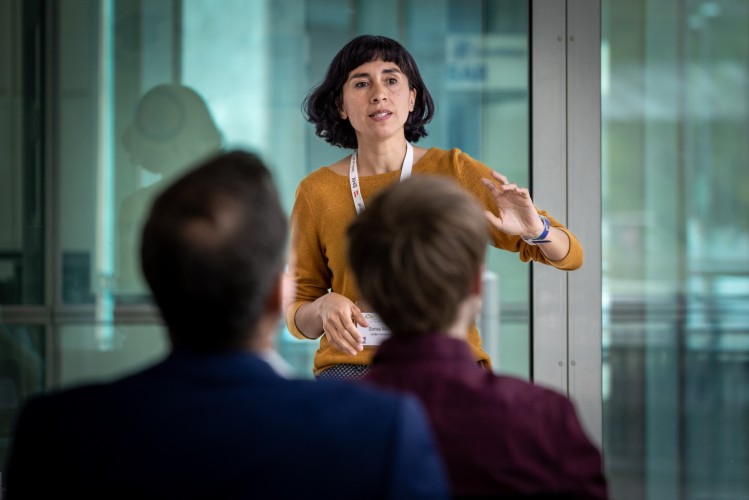
Presenting scientific article for REvaluation Conference (2022)
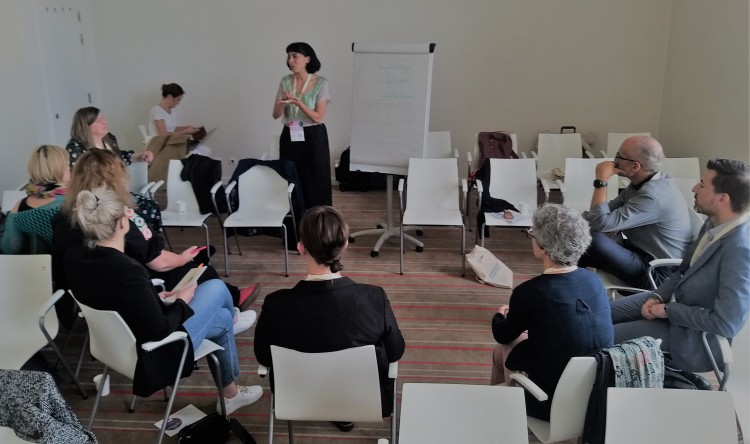
Facilitating Workshop activities on Policy recommendations for CHERRIES project
Performing natural hazard analysis and promoting safe and sustainable water supplies in a slum area of Rio de Janeiro 2015-2017
Researcher for the Project “Implementation of Innovative Technologies in Recovery Processes of Neotropical Urban Rivers“. Funding by Fundação Carlos Chagas Filho de Amparo à Pesquisa do Estado do Rio de Janeiro, FAPERJ. The project considered an integrated approach for promoting safe and sustainable water supplies in a slum area of Rio de Janeiro. Performing watershed management through land use/cover analysis, stakeholder engagement, natural hazard analysis and the implementation of low-cost infrastructure for sewage treatment. Universidade Federal do Rio de Janeiro, UFRJ – Laboratory of Geo-Hydroecology. GEOHECO
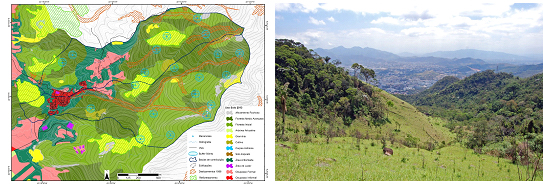
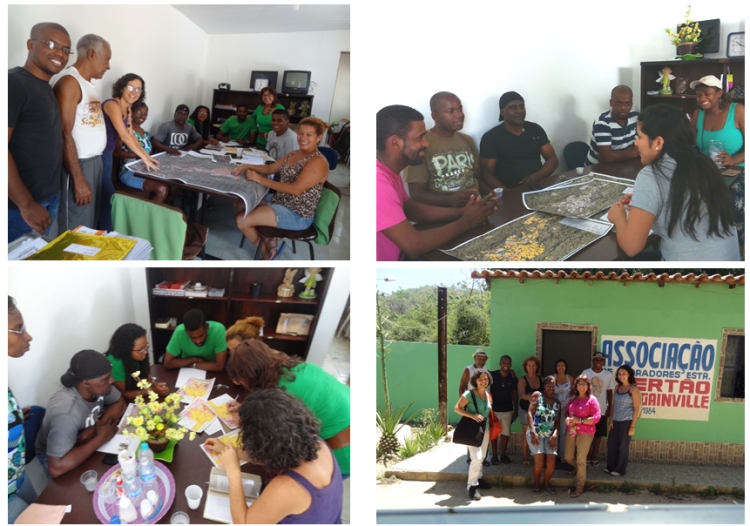
Remote sensing assessment of Water resources impact in the Atacama region of Chile /2015
Assessed monitoring reports of water surface and vegetation cover changes in Atacama lagoons. Environmental Impact Assessment of Rockwood lithium mining project located in Atacama salt flats, Chile. Remote consulting for Hidromás Ltda. http://www.hidromas.cl
Soncor lagoons. Atacama region. Chile
Water quality and Environmental Impact Assessment (EIA) / 2015
Proposal of minimum water quality monitoring parameters for Environmental Impact Studies, including the mining sector, agribusiness, hydropower, landfill, and forestry projects. Remote consulting for the General Water Directorate, Ministry Of Public Works (MOP) Chile. http://www.dga.cl/
Improvement of Environmental impact Assessment methodologies for water resources in Chile / 2014
Analysis and enhancement of current methodologies used in Environmental Impact Assessment of water resources in Chile. Contribution to an official Government Manual. Public bidding for the Directorate General of Water. Remote consulting for HIDROMÁS LTDA.
Ecosystems and water resources advisor / 2008-2011
Department of Conservation and Protection of Water Resources. General Water Directorate, Ministry Of Public Works (MOP) Santiago, Chile.
Responsibilities and achievements:
- Participated in the formulation of the National Strategies and Actions Plans for Wetlands and Biodiversity in Chile (CBD and Ramsar Convention). Represented the Institution in both National Committees.
- Assessed the Environmental Impact of relevant Hydroelectric and Mining projects at the national level, focusing on water resources and biotic components.
Baker river. Chilean Patagonia / EIS HidroAysén.
- Led the development of the first Program of Environmental Monitoring of Water Quality Standard for protecting aquatic ecosystems, Rio Serrano basin.
Rio Serrano basin, Magallanes region, Chile / Working group
- Performed as Technical counterpart in the following government studies:
– Methodology improvement to determine Environmental Flows with an ecosystem approach (Centro de Ecología Aplicada, CEA). Document: Click here
– Application of Bioindicators in the supervision of Environmental Water Quality Standards in Chile (Centro Nacional del Medio Ambiente, CENMA). Document: Click here
Waste treatment and restoration of landfills sites /2007
Proposal writing of projects with regard to waste treatment and recovery of areas affected by illegal landfills applied to the National Fund for Regional Development. Santiago, Chile. Department of Environmental Management.Regional Metropolitan Government of Santiago.
Landscape planning and urban wetland conservation / 2006
Provided recommendations for the conservation of an urban wetland in Coquimbo city using Land use mapping, Environmental zoning, and Landscape planning analysis. Consultancy: “Zoning for Environmental Management of Culebrón estuary”. Coquimbo Municipality. Chile. Click here
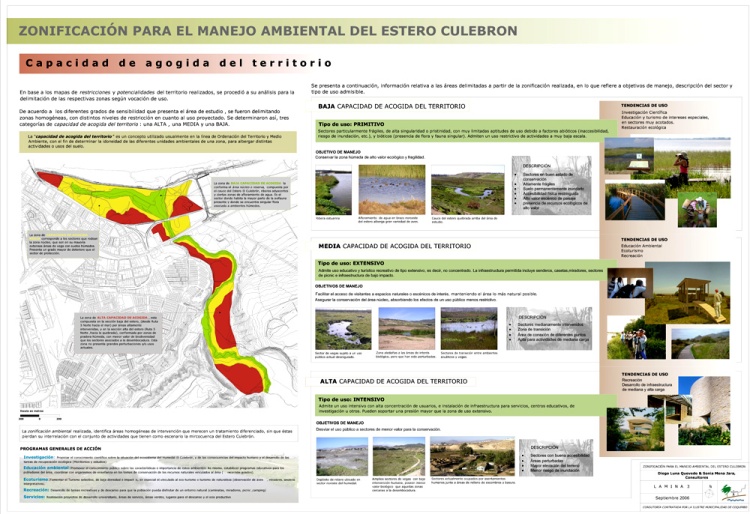
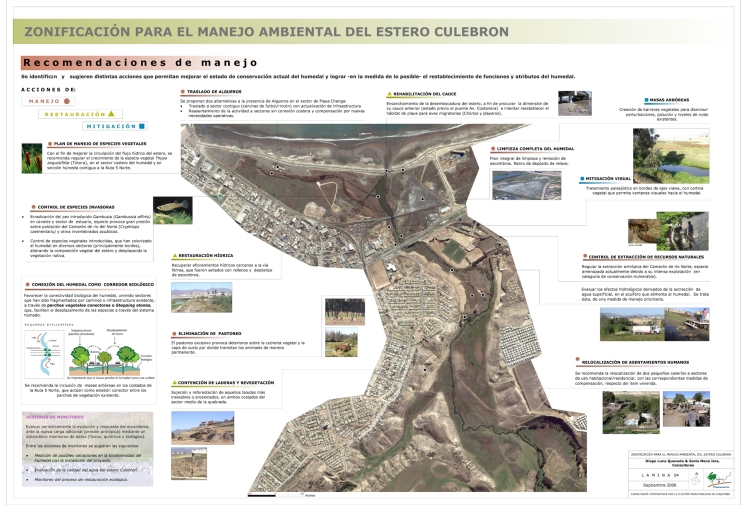
Wetland Conservation – Raising awareness /2004-2006
Participated in the production and dissemination of two Handbooks Publications in pursuit of wise use of coastal wetlands among the local communities, decision-makers and key actors.
Project: “Communication, Education, and Raising Awareness about the Rational Use of the Coastal Wetlands System in Coquimbo, Chile”. Corporación de Ambientes Acuáticos de Chile, CAACH. Coquimbo Region, Chile. Funding by Ramsar Convention – “Wetlands for the Future” Fund.
-
- Handbook “Los humedales no pueden esperar” (Wetlands cannot wait): Click here
- Practical Guide for schools “Manos al humedal” (Hands-on Wetlands): Click here
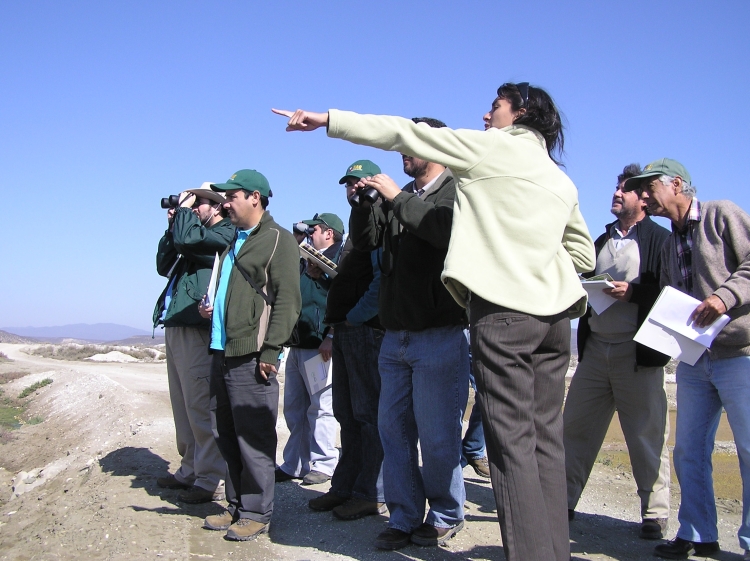
Training sessions

Local Workshops with the Government, Communities and Schools
Wetlands for science and tourism / 2005
Landscape planning and design of tourism infrastructure to establish on coastal wetlands of Tongoy, to promote them as sites for science and tourism. Public bidding for the Chilean Ministry of National Assets.
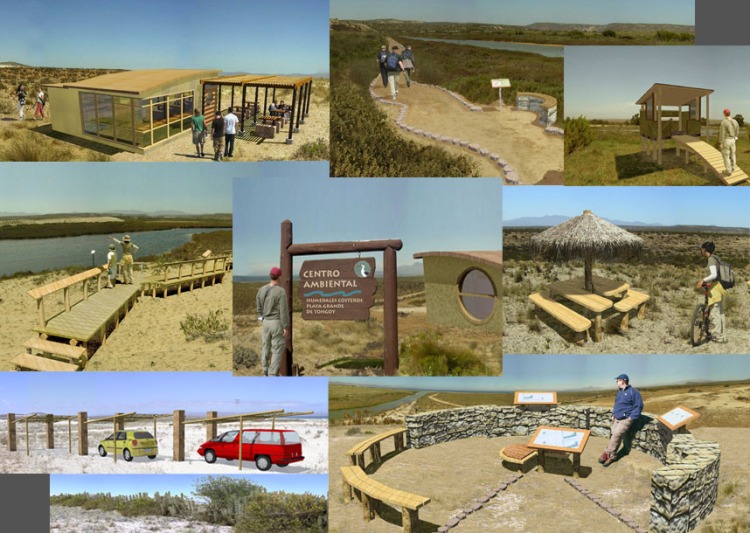
RESEARCH
P U B L I C A T I O N S
ORCID: https://orcid.org/0000-0002-2153-2431
Round Table participation
Symposium on Climate Change and Adaptation in Latin America. Rio de Janeiro, Brazil. “Empowering Social Movements for Climate Change Adaptation: Latin American Experiences” (10-12 November, 2016).
Journal paper – Book
SCHLEE M.B., JARA S.M., MARTINEZ M.I., COELHO NETTO A.L (2018) Effects of Urban Occupation in Rivers Morphology: The Case Study of Upper Pedras River, in Jacarepaguá District, at the Tijuca Massif. In: Leal Filho W., Esteves de Freitas L. (eds) Climate Change Adaptation in Latin America. Climate Change Management. Springer, Cham. Click here
MARTINEZ, M., MENA, S., SCHLEE, M.B., DA SILVA, O., COELHO NETTO, A. L. (2016) Uso do solo e vulnerabilidade socio-ambiental na sub-bacia do alto rio das pedras (Rio de Janeiro/RJ): subsídios para regeneração de rios neotropicais. Revista do Departamento de Geografia, Universidade de São Paulo. (Land use and socio-environmental vulnerability in the sub-basin of the upper river Pedras (Rio de Janeiro / RJ): subsidies for regeneration of Neotropical rivers). Click here
– Presentation in Symposium on Climate Change Adaptation in Latin America, Rio de Janeiro, Brazil, 10th-12th November, 2016.
Conference papers – Presentations
SCIENCE AND TECHNOLOGY, INNOVATION – SCIENTOMETRICS
MENA, S., HEIMERIKS, G., MEIJER, I. & WILLEMSE, T. (2022) Driving the innovation process by connecting regional knowledge bases to local needs. Conference proceedings issue #53 of the fteval Journal for Research and Technology European R&I Policy Evaluation – Conference REvaluation‘22. Click here
MENA, S., NOSTEN, T., BASCUR, JP. & CALERO-MEDINA, C. (2019) Enhancing knowledge of Research Organizations: An analysis of their current classification, collaboration schemes and research impact. 17th International Conference On Scientometrics & Informetrics, September 2019, Italy.
ECOLOGY AND LANSCAPE / WATER, CLIMATE CHANGE AND NATURAL HAZARDS
COELHO NETTO, A. L., SCHLEE, M.B., MENA, S., MARTINEZ, M., DA SILVA, O. (2015) Diagnóstico ambiental e criação de redes colaborativas na regeneração de rios urbanos, estudo de caso Sertão do Rio das Pedras. Congresso de Extensão FAPERJ. Universidade Federal do Rio de Janeiro. Brasil, 2015. (Environmental Diagnosis and collaborative networks towards urban rivers recovering, case study: Sertão community, Rio de Janeiro).
COELHO NETTO, A. L., SCHLEE, M.B., MENA, S., MARTINEZ, M., DA SILVA, O. (2015) Gestão ambiental e regeneração de rios urbanos, estudo de caso Sertão do Rio das Pedras, no Rio de Janeiro. I Simpósio de Revitalização de Rios Urbanos. São Paulo. Brasil, 2015 (Governance and urban river regeneration, case study: Sertão do rio das Pedras, Rio De Janeiro). Click here
MENA, S., COELHO NETTO, A. L & COUTINHO, B. (2014) Mudanças espaço-temporais na Faixa Marginal de Proteção da lagoa da Tijuca e o processo de assoreamento do corpo lagunar. 3° Seminário Nacional sobre o Tratamento de Áreas de Preservação Permanente em Meio Urbano e Restrições Ambientais ao Parcelamento do Solo. Universidade Federal do Pará. Belém, Brasil. September 2014. (Spatio-temporal changes in Riparian Protection Areas of Tijuca Lagoon and the siltation process of the water body. Federal University of Rio de Janeiro. Presentation in III National Seminar Treatment of Preservation Areas in Urban contexts and Environmental Constraint for Land subdivision. Federal University of Pará. Belém, Brazil). Click here
MSc thesis
MENA JARA, S. (2014) Análise das mudanças espaço-temporais na lagoa da Tijuca e o papel da Faixa Marginal de Proteção. Tesis de mestrado. Departamento de Geografia, Universidade Federal de Rio de Janeiro. August 2014. (Analysis of Spatio-temporal changes of Tijuca lagoon and the role of Riparian Protection Areas, Rio De Janeiro, Brazil. MSc Thesis, Federal University of Rio de Janeiro) Click here
P R O J E C T S
Applied Research project: “Implementation of Innovative Technologies in Recovery Processes of Neotropical Urban Rivers” (2014-2017).
Federal University of Rio de Janeiro. Geography Department. GEOHECO Laboratory
Funding: Fundação Carlos Chagas Filho de Amparo à Pesquisa do Estado do Rio de Janeiro, FAPERJ.
Coordinator: Ana Luiza Coelho Netto
Researchers: Mônica Bahia Schlee / Sonia Mena Jara / María Isabel Martínez
Goals
- Gather and develop local solutions to increase landscape and social resilience in face of future extreme rainfall events due to climate change.
- Foster prevention for the Sertão community performing land-use analysis, risk assessment and stakeholder engagement.
- Seek an integrated approach for promoting safe and sustainable water supplies in a slum area of Rio de Janeiro and the implementation of low-cost infrastructure for sewage treatment.
Location
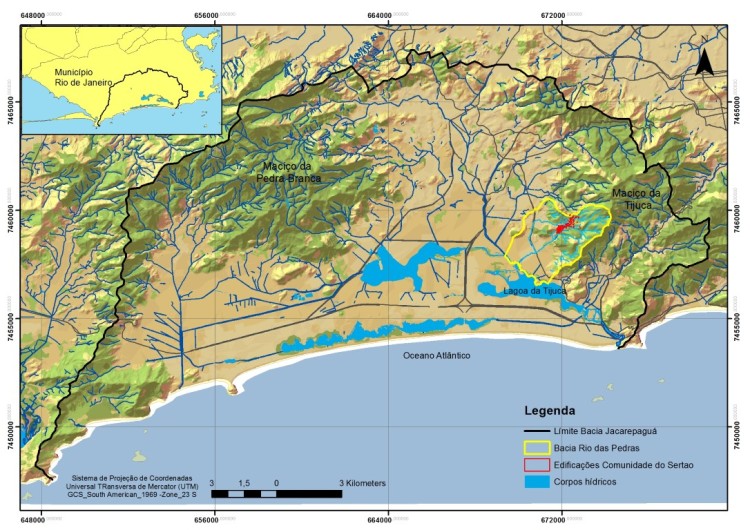
Study area, Rio das Pedras basin. Jacarepaguá district. Rio de Janeiro. Brazil
PHASE 1 outcomes:
Community involvement
Construction of a collaborative network between local households (Estrada do Sertão (AMES) Household Association), researchers and public officers to ensure the sustainability of the project through time.

Land use and cover analysis / Natural Hazard mapping
Assessment and diagnosis of environmental problems using Land use/land cover analysis and Landslide susceptibility maps (ArcGIS 10.1). The mapping effort considered fieldwork and community participation.
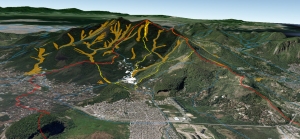
Historical records of natural hazards & Local Vulnerability assessment
Urban Mapping
- Urban uses: residential (formal-informal), commercial, industrial, mixed uses)
- Sewage discharge points
- River overflow points in past flood past events
- Fluvial morphological change
- Vulnerable areas, exacerbated by settlement characteristics
Promoting reforestation
Delimitation of local water supply, spring areas and identification of potential areas for revegetation activities.
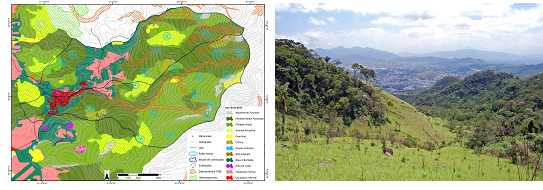
Community workshops
Workshops to raise awareness about natural hazards in the study area (landslides and floods) and human-induced hazards regarding with water pollution and health diseases .

PHASE 2
Monitoring program
Installation of monitoring stations of meteorological parameters and water flow assessment, in order to improve the understanding of watershed behavior. Water quality assessment in different points along the Pedras river, including spring areas, water storage tanks and sewage discharge points.
Selection of Green infrastructure methods for Wastewater treatment
Investigation, evaluation, selection and application of on-site technologies in a pilot project in order to purify wastewater and raw sewage. By examining potential alternative of wastewater treatment systems and technologies and linking them with affordable methods in use in developing countries, this project may constitute an innovative model to apply in other river drainage catchments systems, with similar social and environment conditions. A collective design planning with local residents and specialists will be one of the next steps of the project.
MSc thesis: “Spatio-temporal analysis of Tijuca Lagoon and the Role and Efficiency of the Riparian Protection Zone, Rio de Janeiro, Brazil” (2013-2014). Summa cum laude
Federal University of Rio de Janeiro. Geography Department. GEOHECO Laboratory
Funding: CAPES- Brazil Scholarship
Supervisor: Ana Luiza Coelho Netto.
- The thesis project aimed the improvement of methodologies and public policy for the establishment of Riparian Buffers in Brazil.
The Tijuca lagoon is part of a complex of lagoons located in a wide fluvial-marine plain that is being heavily urbanized and is subject to fluvial discharge from river systems originating in the adjacent coastal massifs. An analysis of land use and land cover was performed in order to determine the role and efficiency of the Riparian Protection Zone as a protective barrier for the lagoons. Outcomes showed significant landscape changes in the lagoon and surroundings between 1955 and 2010. For a 500 meter wide strip around the lagoon, there was a 48% reduction of mangroves, salt marshes and swamps associated with the formal and informal urban settlements in the area. In the Riparian Protected Zone of Tijuca lagoon (30m strip), the overall vegetation cover reduction was about 8% over the same period. Likewise, a shrinkage of 22% (1 km2) was detected in the lagoon surface area, mainly due to siltation. The sedimentation process of the lagoon is closely related to landslides events in the Tijuca massif over the past decades, especially those of 1966-1967 and 1996, which were triggered by heavy rainfall events that transported material through the drainage canals from the mountain to the reservoirs. Furthermore, water quality analysis of the lagoon and the Cachoeira river, a tributary to the lagoon system, confirm the high pollution levels mainly related with the sewage contribution from urban areas. Thus, the degradation levels of Tijuca lagoon raise questions regarding the effectiveness of the Riparian Protected Buffer in preserving water quality and sediment control in coastal lagoons in Brazil.
MSc thesis document: Click here
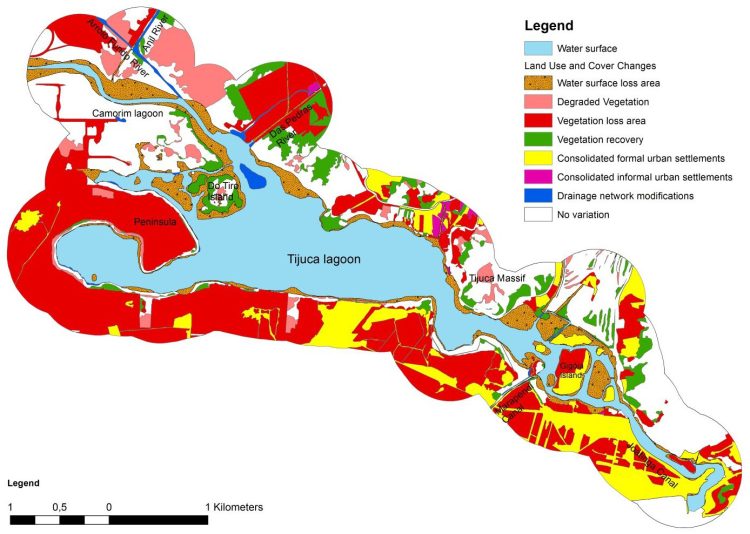
The research project was developed in partnership with the Rio de Janeiro City Hall and widely reported among government agencies and other Universities. In September of 2014 I presented the outcomes at III National Seminar Treatment of Preservation Areas in Urban contexts and Environmental Constraint for Land subdivision. Federal University of Pará. Belém, Brazil. The conference publication was “Spatio-temporal changes in riparian protection area of Tijuca Lagoon and the siltation process of the water body“.
MSc thesis presentation
Education
MSc. in Geography (summa cum laude). Federal University of Rio de Janeiro. Brazil (2012-2014). Center for Mathematics and Natural Sciences (CCMN)
Bachelor in Ecology and Landscape. Central University of Chile (1999-2004). Faculty of Architecture, Planning and Landscape. Santiago, Chile
PROFESSIONAL TRAINING
- Tableau Training. InfoTopics. Center for Science and Technology. Leiden, Netherlands (2021).
- SQL – Training. Center for Science and Technology. Leiden, Netherlands (2018).
- Measuring Science and Research Performance. Centre for Science and Technology Studies. Leiden, Netherlands (2018).
- WASH in emergencies. Dutch Surge Support (DSS water) and Dutch Risk Reduction Team (DRR-Team), Delft, Netherlands (2016).
- Urban Flood and Disaster Risk Mitigation at UNESCO-IHE. Delft, Netherlands. (2016).
- Vulnerabilities in the face of socio-natural disasters. (online course) UAbierta platform, University of Chile (2016).
- Remote Sensing and digital image processing. Geotecnologies laboratory. Rio de Janeiro State University, Brazil (2013).
- Planning and Environmental Management of River Basins. Federal University of Rio de Janeiro, Brazil (2012).
- Application of Hydrology in natural hazard prevention. IX National Symposium on Geomorphology. Federal University of Rio de Janeiro, Brazil (2012).
- Biology, physics and chemistry of inland water. Foundations of Limnology. Institute of Philosophy and Complexity Sciences (IFICC), Santiago, Chile (2010).
- Fluvial Systems: An Ecosystem approach. Catholic University of Temuco, Chile (2010).
- Statistics Applied to the Analysis of Environmental Data. FUNIBER (2010).
- International Postgraduate Course in Limnology with emphasis on quality assessment of aquatic environment. Southern University of Chile, Valdivia. Chile (2009).
- Water Pollution Faculty of Physical Sciences and Mathematics. University of Chile (2008)
- Ibero-american Conferences: Effects of global changes on biodiversity in wetlands of Ibero-America. Spanish Cooperation Training Center in Antigua, Guatemala. CYTED / AECI (2007) – OAS scholarship participation.
- Training in Methodologies, Analysis and Prevention of socio-environmental conflicts. Latin American Future Foundation (2007).
- International course. Environmental Restoration for Sustainable Watershed Management. CONAF – JICA (2006).
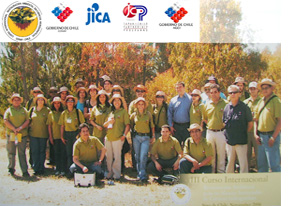
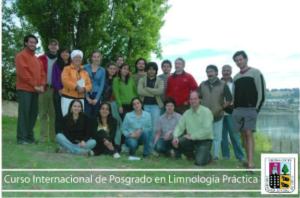
CONFERENCES, SEMINARS, WORKSHOPS
- Innovative approaches to water, sanitation and hygiene (WASH) in emergency situations. IRC event Den Haag, Netherlands (2015).
- Rio+20. United Nations Conference on Sustainable Development. Rio de Janeiro, Brazil (2012).
- I Workshop Geotechnologies applications in environmental analysis. Virtual Institute of Global Change. COPPE / Federal University of Rio de Janeiro, Brazil (2012).
- IV Meeting. Researchers of Tijuca National Park. Rio de Janeiro, Brazil. (2011).
- “Water Framework Directive”: A new way of water management and planning” Narcís Prat – U. Barcelona / National Center For The Environment, Santiago, Chile (2010).
- Workshop: “Bioindicators and their application to assess water quality”. National Center for The Environment, Santiago, Chile (2010).
- V Congress Chilean Limnology Society. Arturo Prat University (2008).
- II World Water Forum. México City. Environmental monitor of scholar group “Guardians of wetlands”. Mexico City (2006).
